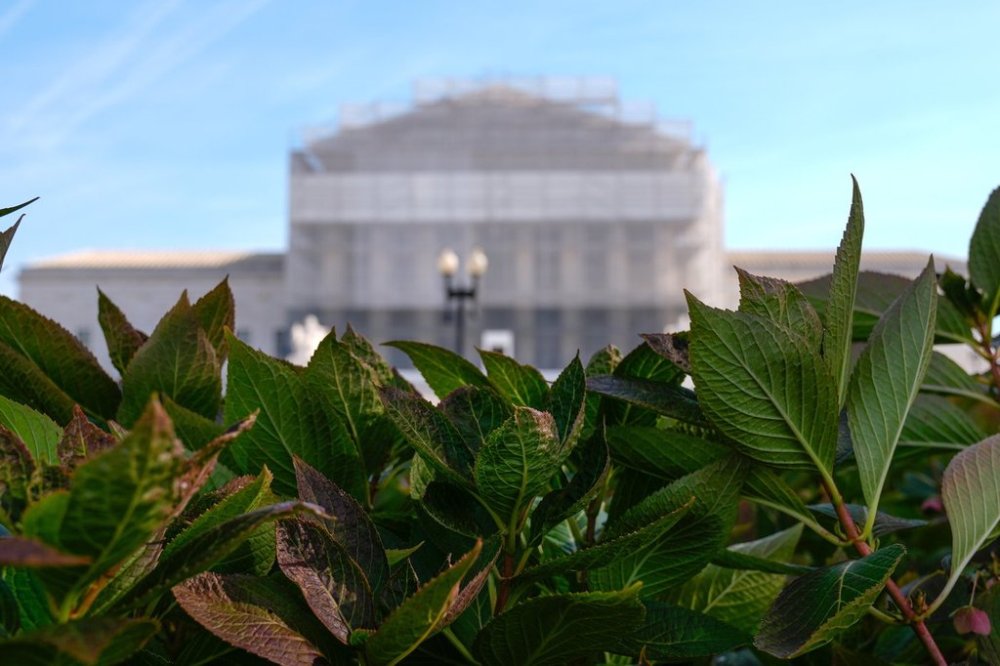Louisiana prison guards cut a Rastafari inmate’s dreadlocks. Supreme Court will decide if he can sue
Advertisement
Read this article for free:
or
Already have an account? Log in here »
To continue reading, please subscribe:
Monthly Digital Subscription
$0 for the first 4 weeks*
- Enjoy unlimited reading on winnipegfreepress.com
- Read the E-Edition, our digital replica newspaper
- Access News Break, our award-winning app
- Play interactive puzzles
*No charge for 4 weeks then price increases to the regular rate of $19.00 plus GST every four weeks. Offer available to new and qualified returning subscribers only. Cancel any time.
Monthly Digital Subscription
$4.75/week*
- Enjoy unlimited reading on winnipegfreepress.com
- Read the E-Edition, our digital replica newspaper
- Access News Break, our award-winning app
- Play interactive puzzles
*Billed as $19 plus GST every four weeks. Cancel any time.
To continue reading, please subscribe:
Add Free Press access to your Brandon Sun subscription for only an additional
$1 for the first 4 weeks*
*Your next subscription payment will increase by $1.00 and you will be charged $16.99 plus GST for four weeks. After four weeks, your payment will increase to $23.99 plus GST every four weeks.
Read unlimited articles for free today:
or
Already have an account? Log in here »
WASHINGTON (AP) — The Supreme Court on Monday wrestled with whether a former Louisiana inmate can sue prison officials who cut off his dreadlocks in violation of his Rastafari religious beliefs.
The justices heard arguments in the case of Damon Landor, who wants to sue for money damages under a federal law designed to protect the religious rights of inmates.
After two hours of arguments, the court’s three liberal justices seemed firmly on Landor’s side. But it was unclear whether even one of the six conservatives, let alone the two who would be necessary for a majority, would join them.

No one is defending what happened to Landor in 2020 when guards cut the dreadlocks he had been growing for nearly two decades.
But Louisiana argues that the law, the Religious Land Use and Institutionalized Persons Act, can’t be used to hold those who violate inmates’ rights financially responsible. Lower courts have so far uniformly ruled against Landor and others who have made similar claims.
“Look, the facts of this case are egregious,” Justice Amy Coney Barrett said. But Barrett also worried that every court that has weighed in “went the other way.”
The justices could be guided by their decision in 2020 allowing Muslim men to sue over their inclusion on the FBI’s no-fly list under a sister statute, the Religious Freedom Restoration Act.
The Justice Department, which argued against the plaintiffs in the no-fly list case in President Donald Trump’s first administration, now agrees with Landor.
When Landor entered the prison system for a five-month term in 2020, he carried a copy of an appeals court ruling in another inmate’s case holding that cutting religious prisoners’ dreadlocks violated the federal law.
At his first two stops, officials respected his beliefs. But things changed when he got to the Raymond Laborde Correctional Center in Cottonport, about 80 miles (130 kilometers) northwest of Baton Rouge, for the final three weeks of his term.
A prison guard took the copy of the ruling Landor carried and tossed it in the trash, according to court records. Then the warden ordered guards to cut his dreadlocks. While two guards restrained him, a third shaved his head to the scalp, the records show.
Landor sued after his release, but lower courts dismissed the case. The 5th U.S. Circuit Court of Appeals lamented Landor’s treatment but said the law doesn’t allow him to hold prison officials liable for damages.
Louisiana wrote that “the state has amended its prison grooming policy to ensure that nothing like petitioner’s alleged experience can occur.”
The Rastafari faith is rooted in 1930s Jamaica, growing as a response by Black people to white colonial oppression. Its beliefs are a melding of Old Testament teachings and a desire to return to Africa. Its message was spread across the world in the 1970s by Jamaican music icons Bob Marley and Peter Tosh, two of the faith’s most famous exponents.
A decision in Landor v. Louisiana Department of Corrections, 23-1197, is expected by spring.
___
Follow the AP’s coverage of the U.S. Supreme Court at https://apnews.com/hub/us-supreme-court.

